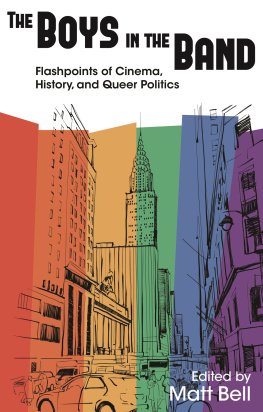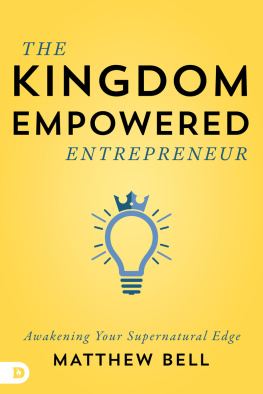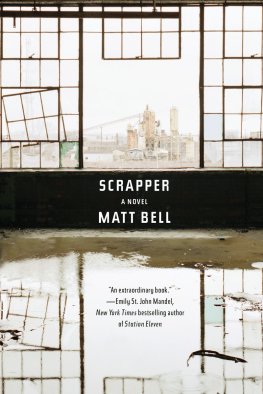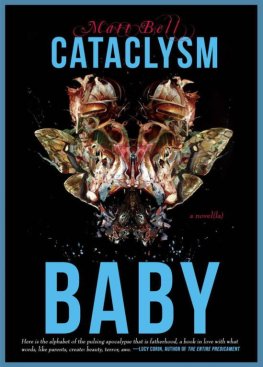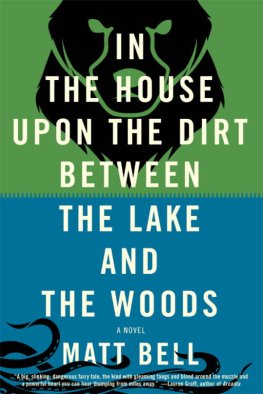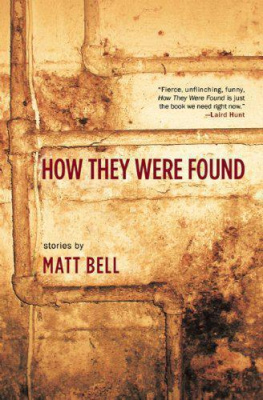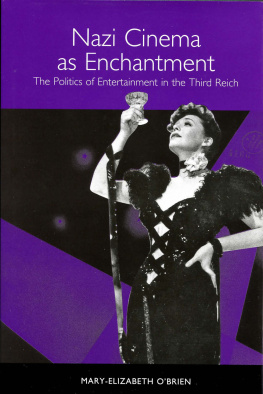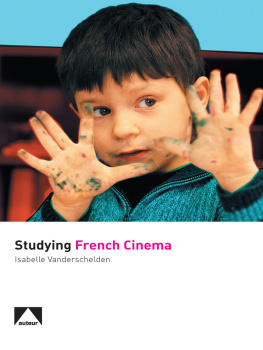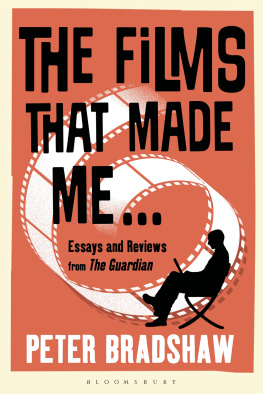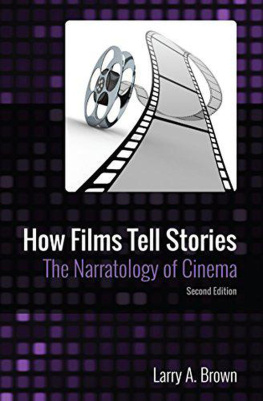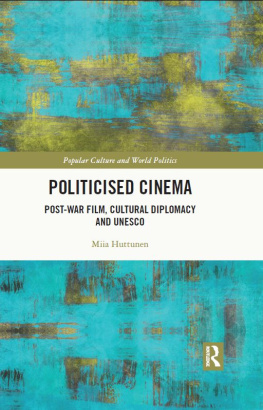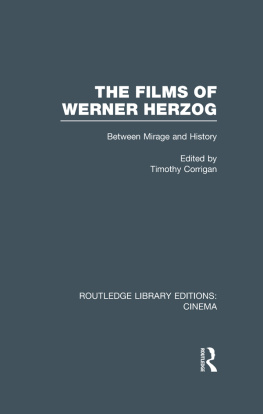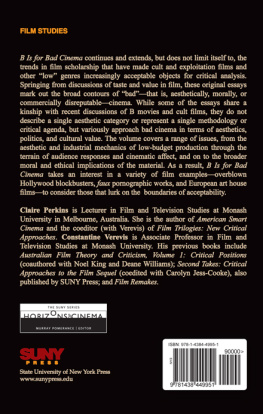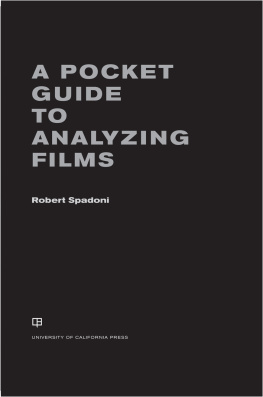CONTEMPORARY APPROACHES TO FILM AND MEDIA SERIES
A complete listing of the books in this series can be found online at wsupress.wayne.edu.
GENERAL EDITOR
Barry Keith Grant
Brock University
ADVISORY EDITORS
Robert J. Burgoyne
University of St. Andrews
Caren J. Deming
University of Arizona
Patricia B. Erens
School of the Art Institute of Chicago
Peter X. Feng
University of Delaware
Lucy Fischer
University of Pittsburgh
Frances Gateward
California State University, Northridge
Tom Gunning
University of Chicago
Thomas Leitch
University of Delaware
Walter Metz
Southern Illinois University

2016 by Wayne State University Press, Detroit, Michigan 48201. All rights reserved. No part of this book may be reproduced without formal permission.
Manufactured in the United States of America.
20 19 18 17 165 4 3 2 1
Library of Cataloging Control Number: 2016941942
ISBN 978-0-8143-4153-7 (paperback) | ISBN 978-0-8143-4154-4 (ebook)

Designed and typeset by Keata Brewer, E.T. Lowe Publishing
Composed in Minion Pro
Wayne State University Press
Leonard N. Simons Building
4809 Woodward Avenue
Detroit, Michigan 48201-1309
Visit us online at wsupress.wayne.edu
In memory of Gregory W. Bredbeck, whose queer intellectual life enabled me to envision my own
Contents

MATT BELL
STEVEN COHAN
JOE WLODARZ
RYAN POWELL
NICK DAVIS
JAMES WILSON
DAVID A. GERSTNER
STEPHEN VIDER
RAMZI FAWAZ
MATTHEW TINKCOM
J. TODD ORMSBEE
AMY VILLAREJO
Acknowledgments

Among the many pleasures I have taken in working on this project, some of the greatest have come in communication with colleagues and friends who have generously given me their encouragement, guidance, and companionship during its development. First among these is David Gerstner, who initially invited me to take part in a workshop on The Boys in the Band at the 2012 Society for Cinema and Media Studies conference and afterward urged me to pursue publishing an edited collection devoted to the film. His energy and fearlessness have inspired me all along, and his shrewd advice in matters large and small has proved invaluable.
I have boundless admiration and gratitude for the contributors to this volume, all of whom not only came up with a brilliant, original approach to the film but also did the hard, long-term work of research and writing that has resulted in their finished chapters. Their conversation and correspondence have been gratifying, and I now think of them collectively as a band of good friends. I thank in particular Steven Cohan, Nick Davis, Stephen Vider, and Amy Villarejo; their timely recommendations and bits of counsel have been important aids to my efforts.
Several audiences have crucially informed this books shape and sense of purpose. Conceiving this project in advance of certain academic presentations has helped me to clarify its significance, and individual audience members questions and comments have prompted improvements. In addition to the highly engaged audience at the 2012 SCMS conference, audiences offered helpful comments at the 2014 SCMS conference and at the 2013 and 2015 Modern Language Association conventions. I also shared portions of my introduction with colleagues at Bridgewater State University in 2015, and I remain grateful for their generous responses. Valerie Rohy and Sean Desilets gave a draft of the introduction tough, scrupulous readings; I cant imagine a better pair of readers, and I thank them for their readiness to help with this piece and for their long-standing friendship.
Bridgewater State University has been my happy academic home over the years of this projects development. Material support has come in a variety of forms there, including a 2014 summer grant from the Center for the Advancement of Research and Scholarship to conduct research for the books introduction. That funding made possible a visit to the Film Study Center at the Museum of Modern Art in New York; I am grateful for Ashley Swinnertons assistance during the day I spent there. The BSU librarys archivist, Orson Kingsley, did not hesitate to help with one uniquely tricky illustration for this book, and Tim Wensons technical expertise and patient assistance made possible another two dozen illustrations. In more general ways, I have benefited from working alongside colleagues who enrich my life daily, both in and beyond my own department. It gives me great pleasure to thank Ann Brunjes, Benjamin Carson, Kimberly Chabot Davis, Anne Doyle, Kathy Evans, Diana Fox, John Hooker, Bjorn Ingvoldstad, John Kucich, Leora Lev, John Mulrooney, Erin OConnor, Maura Rosenthal, John Sexton, Jadwiga Smith, William Smith, Lee Torda, and Sarah Wiggins.
Transforming the draft manuscript into a book has involved challenges of many sorts, and I would not have been able to meet them without a crack team at Wayne State University Press, notably production editor Carrie Downes Teefey and designer Rachel Ross. I am very thankful for Andrew Katzs excellent copyediting skills and for Rachel Lyons meticulous work on the index. From the beginning, Annie Martins knowledge and professionalism have kept this project on track, and her calm manner and good humor have been reliable sources of reassurance at every step.
Supportive words about this project from colleagues and mentors elsewhere have also heartened me over the past few years. William Germano, David Greven, Joseph Litvak, and D. A. Miller have all urged me on, and I hope they enjoy seeing the result. At a late stage in the books development, I wrote to Mart Crowley, whose immediate and generous reply continues to delight me. Lee Edelmans rigorous reading practices set a standard that has improved all of my academic efforts, and I am deeply appreciative of his kind, unstinting advocacy of my work over many years.
Outside the world of academia, friends and family have given me experiences of love and laughter that have indirectly, but no less decisively, made my work possible. Among them, I want to thank especially my parents, Michael Bell and Louise Bell, who long ago made me feel free to become the person I grew up to be; Todd Anderson, who showed me the humor and affection in The Boys in the Band; and Michael Kaplan, whose steadfast love sustains me.

Introduction
On Returning to The Boys in the Band
MATT BELL
Why should a dozen scholars come together in the twenty-first century to take another look at William Friedkins 1970 film The Boys in the Band? After more than four decades, audiences and commentators of various persuasions have already settled on a certain reckoning of its value for cinema, history, and queer politics: it is merely an early and minor effort in the career of a director who went on to create cinematic monuments called
Next page
